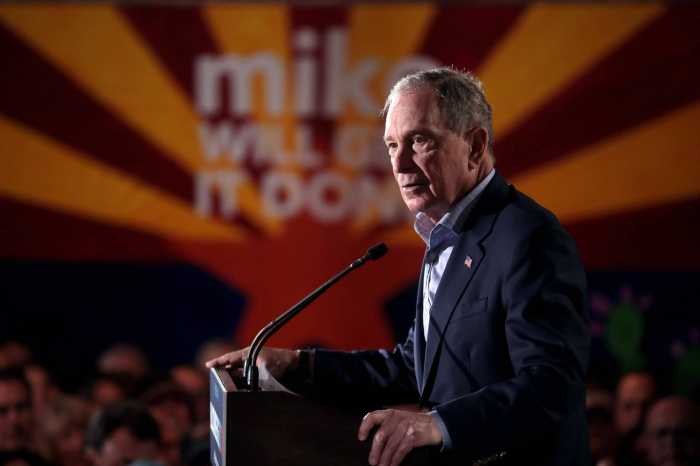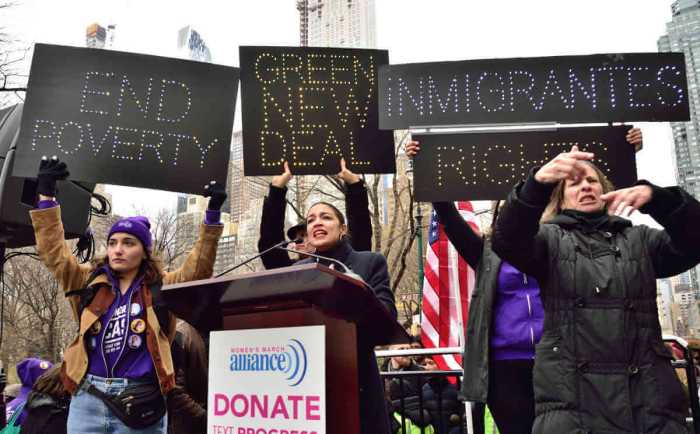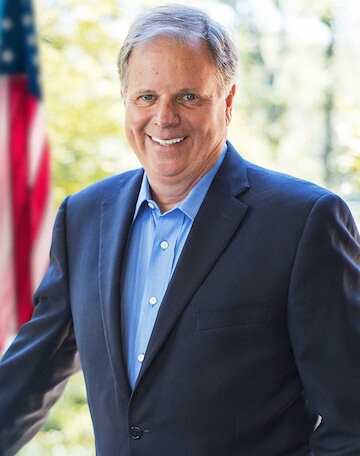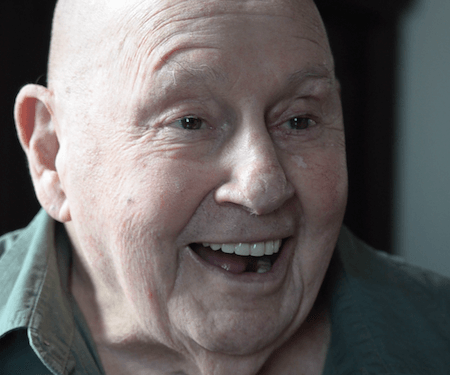In an address before an exuberant, largely LGBT crowd in New York City, President Barack Obama made a spirited case for the progress during his seven years in office not only on issues of concern to the queer community, but more generally on questions of economic prosperity and social justice. In his speech, the president specifically took on recent controversies pitting religious freedom claims against LGBT rights advances.
Introduced by Jim Obergefell, who was the named plaintiff in this summer’s successful marriage equality case, Obama opened his remarks by reviewing the landscape of gains on LGBT civil rights issues during his presidency, which earned him repeated standing ovations from the 530 attendees who paid between $1,200 and $33,400 dollars for a seat at the September 27 event, an LGBT Gala fundraiser for the Democratic National Committee (DNC) held in Midtown’s Gotham Hall.
Calling Obergefell –– who sued the State of Ohio to have the death certificate for his late husband, John Arthur, reflect the fact of their marriage –– a “trailblazer,” the president went on to say, “We now live in an America where our marriages are equal.” He also noted, “Tonight we live in an America where Don’t Ask, Don't Tell is something that don’t exist.”
At roughly the one-third mark in his 16-minute speech, Obama pivoted from the specifics of LGBT issues to the condition of American society generally and made an argument for his success aimed squarely at the Democratic base, saying, “It’s getting better for all us of.”
Pointing to 66 months of consecutive private sector job gains, he noted that his 2012 opponent, Mitt Romney, had pledged to bring unemployment down to six percent by the end of his first term, a measure that the economy already beats by almost a full percentage point. That growth, the president argued, came despite warnings from Republicans that Obamacare –– which he said has grown the number of Americans with health insurance by 17 million –– would “kill jobs, explode the deficits, and destroy freedom.”
The president contrasted gains in areas from budget reduction to clean energy production with the “spiraling economic crisis” of 2007 and 2008 and the two wars he inherited, and mocked his GOP critics, saying, “Those were the golden years, apparently. And then I came in and messed it all up. I don’t pay attention to much of this stuff, but you gotta give these folks credit for chutzpah.”
Obama continued in this vein, adding, “So since everything was going so well back in 2007 and 2008, now if we can just repeal Obamacare, and gut Wall Street reform, and shut down our government over women’s access to health care, and deny that the planet is getting warmer, they got a plan to get us back on track.”
The president then returned to LGBT issues, noting the radically changed climate over just the past decade.
“The good news is they probably won’t use marriage equality as a wedge issue [in 2016] like they did in 2004,” he said.
Still, Obama noted that some Republican presidential candidates are reluctant to give up the ghost of gay-bashing. In an apparent reference to Texas Senator Ted Cruz, he said, one candidate “ boasts that he introduced an amendment to end nationwide marriage equality –– which isn’t even an accomplishment at all.” And, in an allusion to former Arkansas Governor Mike Huckabee, the president said another candidate thinks, “Americans should just disobey the US Supreme Court ruling entirely.”
Obama then turned to the crux of a key issue that continues to divide Democrats and Republicans on the question of marriage equality –– the use of religious freedom claims to sidestep equal treatment of same-sex and different-sex couples.
“We affirm that we cherish our religious freedom and are profoundly respectful of religious traditions,” the president said. “But that doesn't give us the right to deny our fellow citizens their constitutional rights. And that even as we are respectful and accommodating genuine concerns and interests of religious institutions, we need to reject politicians who are supporting new forms of discrimination as a way to scare up votes.”
Obama also asserted, “We’ve come a long way in changing hearts and minds so that trans men and women can be who they are –– not just on magazine covers, but in workplaces and schools and communities,” and then once again pivoted to the bigger picture.
“Harvey Milk once said, ‘If a gay person makes it, the doors are open to everyone,’” the president said. “But for those of us who made it through the door, we have a unique obligation to reach back and make sure other people can make it through those doors, too.”
The struggle, he said, is for “not just our own freedom but for everyone’s freedom” –– including women, racial, ethnic, and religious minorities, “non-believers,” and “the worker denied a living wage.”
Saying that the 14 months between now and the 2016 presidential election “will not be easy,” Obama said, “Right now what makes me proudest to be a Democrat is that at our core, we really do believe in everybody having a shot.”
In comments to Gay City News prior to the president’s remarks, US Representative Debbie Wasserman Schultz of Florida, who chairs the DNC, reinforced Obama’s commitment to take the Republicans on over the effort to use religious freedom arguments to undermine LGBT rights advances, saying the party was “100 percent” committed to do so. In fact, she said, “We already do.”
Wasserman Schultz also said she was “confident” that the DNC would take a strong stand in support of the Equality Act, introduced in Congress earlier this year, that would add protections based on sexual orientation and gender identity to the 1964 Civil Rights Act and related federal statutes.
“The rights of the LGBT community are the central civil rights battle of the day,” she said. “I’m confident we will continue to draw contrasts with the Republicans’ stands.”
Asked her view on how Republican Speaker John Boehner’s resignation will affect the partisan climate on Capitol Hill, Wasserman Schultz saw little reason for optimism.
“The Tea Party has already claimed Boehner’s head,” she said. “They will be insistent that the next leader toe the line.”
Saying she had no idea whether California Republican Kevin McCarthy, who as majority leader is Boehner’s number two, had a lock on the post, Wasserman Schultz added, “It would surprise me if there is not a fight.”




































